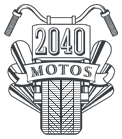DNEPR with sidecar 1973 PROFESIONALY RESTORED 2 WHEEL DRIVE POWERFUL MILITARY BIKE! HISTORY
Wherever one looks, this bike screams 1939! Frame, sheet metal, wheels, handlebars, tractor seats, exhaust, 750cc engine, 4-speed transmission, etc.
The history of Ural&Dnepr began in late 1939. A secret meeting was held at the Ministry of Defence of the Soviet Union. The matter under discussion concerned the best model of motorcycles to be the most appropriate for the Soviet Armed Forces. Despite the Molotov-Ribbentrop Pact, the Soviet Union knew it would soon be going to war against Adolf Hitler, the ruthless dictator of the German Third Reich.
The most recent historical researches prove that Joseph Stalin being as ruthless dictator as Adolph Hitler himself, if not even more, planned to attack Nazi Germany first. Thus, he ordered the military to prepare in all possible areas, including the ground forces. It was mostly unknown that in the same period of time the Soviet Air Forces were growing tremendously enabling the Soviet Army to attack the Nazi Germany first with a devastating surprise attack. Having seen the effects of Blitzkrieg (lighting war) against Poland, upgrading of military vehicles was of dominant importance to Joseph Stalin. According to official accounts, after a long discussion the BMW R71 motorcycle was found to closely match to the specific requirements, and five of those motorcycles were secretly purchased in Sweden. In the process known as reverse engineering the bikes were taken down and copied part for part. In early 1941 the first test models of M-72 motorcycles were shown to Marshall Stalin and the final decision to start their production was made.
A more likely story is that the BMW factory supplied the construction drawings and casting moulds. As a result of the Molotov - Ribbentrop Pact, transfers of technology took place in support of their Soviet "friends" in different areas. Soviet engineers toured German aircraft factories and brought back complete cannons as samples. The OPEL Kadett was given to the Soviets just prior to the war; however, it commenced series production only toward the end of the war as the Moskvitch 400. In 1941, BMW began series of R75 and did not resume production of R71.
After the WWII the Factory was further developed and in 1950 the 30,000th motorcycle was produced. Since then over 3.2 million motorcycles, mainly equipped with sidecars, have been produced. The history of the URAL began with the glory of helping to defeat the terror of Hitler's army on the Russian and European battlefields. The URAL was built for the military only, up until the late 1950's when another plant in Ukraine (Kiev Motorcycle Zavod - KMZ) took over the manufacture of the same model for military use, but under the name DNEPR; and the Irbit Motorcycle Zavod (IMZ) began to concentrate on making bikes for domestic consumption. Today both plants manufacture bikes both for domestic and military needs.
![Photobucket - Video and Image Hosting]()
For sale fully restored DNEPR SIDECAR MOTORCYCLE 1973. It was restored in USSR military style. After restoration the bike past about 10 miles allowing checking and regulating all systems. It comes with everything what you see on pics: ammo-boxes, shovel, machine gun mount, spire tire, antenna and BRAND NEW BATTERY. Sale and restoration of motorcycles Dnepr Our company has been successfully engaged in the professional restoration of old motorcycles Dnepr (KMF) for many years. All equipment is completely restored, worn parts are replaced with new ones, eliminating problems in further operation of the motorcycle. The whole process of restoration is under the full control of specialists. Highly trained and qualified staff as well as modern equipment provide maximum similarity with the restored motorcycle released from the assembly line many years ago. The restoration process is very long and laborious. It begins with the delivery of a dismantled motorcycle to the shop. Then, the bike is examined, all items are sorted by degree of wear and suitable ones are chosen for further use. Unsuitable details sent for scrap. The next phase of the restoration is restoration of worn parts. It begins with the welding. Then, it is very important to take a responsible approach to sandblast cleaning of the motorcycle parts, i.e. to get rid the details of old paint, rust and other visible contamination. The final stage provides glass blasting of the same parts. It is necessary to remove all the fine contaminants which are not visible to the naked eye. The process of Dnepr motorcycle parts restoration is continued with powder painting. This provides uniform and continuous application of the paint on the item, even in tight spaces. The painted parts undergo the Polymerization in a special chamber at very high temperature allowing the paint melting and filling the pores of the coating.
If you have any questions please feel free to contact with me
| 









 2002 ural
2002 ural 2004 ural
2004 ural